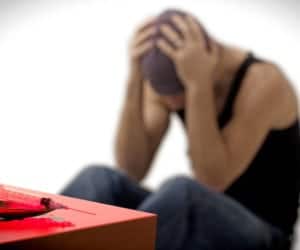Dependence On Heroin: Addiction Stages and Treatment

Overcoming Dependence on Heroin
Heroin is a highly addictive and dangerous drug that can be taken through injection into the veins, inhaled or smoked. Heroin is an opioid that is made from morphine and enters the brain quickly binding with receptors that have to do with feelings of pain and pleasure as well as the heart rate, sleep and breathing. Developing a dependence on heroin can lead to the user needing more of the drug to achieve the same effect and this increases the risk for dangerous side effects.
According to the National Institute on Drug Abuse, there has been a rising number of opioid overdose deaths which has lead to many states making naloxone available to at-risk persons in their families as well as first responders in communities. Naloxone is a medicine that can treat an opioid overdose when given right away, sometimes more than one dose is needed.
Don’t let yourself or a loved one get to the point of needing people around you to carry Naloxone, reach out and get help the addiction today. Call WhiteSands at (877) 855-3470.
Heroin Addiction Stages
There are different heroin addiction stages but they commonly follow the order below. Heroin addiction begins with the first use, then can turn into an addiction and then dependency and then withdrawal when the drug isn’t being used.
First use – those who use heroin just one time can develop a psychological addiction. After that first use it’s very easy to use it again in the near future.
Addiction – comes to play when those who are using heroin continue using despite consequences it may have on their life. They have a psychological urge to use the drug and happens when someone uses the drug frequently.
Dependence on heroin – A Dependence on heroin is prominent in those who use heroin on a daily basis making the body unable to function without the use of the drug. Those using heroin commonly become dependent on the drug after using it just a few times. There is a list of symptoms that can be observed when someone has a dependence on heroin but have stopped using it, they are:
- Goose bumps
- Yawning
- Racing heartbeat
- Anxiety
- Gastrointestinal distress
- Insomnia
- Strong cravings
- Paranoid delirium
- High blood pressure
- Dilated pupils
Withdrawal – withdrawal is felt as one of the last heroin addiction stages. This can be felt when the user no longer has heroin in their body. This can mean that it is felt between doses, or when the person is in rehab. Withdrawal from heroin is severe and can happen within 6 to 12 hours of the last use and typically can clear up after 5 to 10 days. Some common signs of Heroin withdrawal are:
- Anxiety
- Yawning
- Insomnia
- Flu-like symptoms
- Racing heartbeat
Heroin Addiction Treatment
If you or your loved one is suffering from a dependence on heroin it is important that help if sought. Heroin is something that due to it’s physiological addictiveness produces desirable feelings in the user that can only be attained by larger doses of the drug each time. Finding Heroin Addiction Treatment is key because the earlier help can be found, the better it is for the patient.
When a person decides to enter heroin addiction treatment in a center such as WhiteSands, they will first be evaluated on their physical and mental state. This allows doctors and staff to diagnose what type of therapy is needed for each specific person.
Heroin addiction treatment consists of a medical detox after the initial evaluation. This is when the patient enters into the phase in treatment where they will experience withdrawal symptoms because their body is being rid of all of the toxins that have built up over the coarse of the addiction. This phase is monitored closely by doctors and medical staff because it can be dangerous for the patient. They are provided with medication to ease the pain felt during withdrawal and to ensure their safety.
Once the patient has successfully completed the detox phase in heroin addiction treatment they can then move onto other forms of therapy such as group, individual and family. Not to mention that patients are taught how to deal with cravings and triggers as well as how to adapt back to a normal life after treatment.
If you or a loved one needs help with abuse and/or treatment, please call the WhiteSands Treatment at (877) 855-3470. Our addiction specialists can assess your recovery needs and help you get the addiction treatment that provides the best chance for your long-term recovery.
